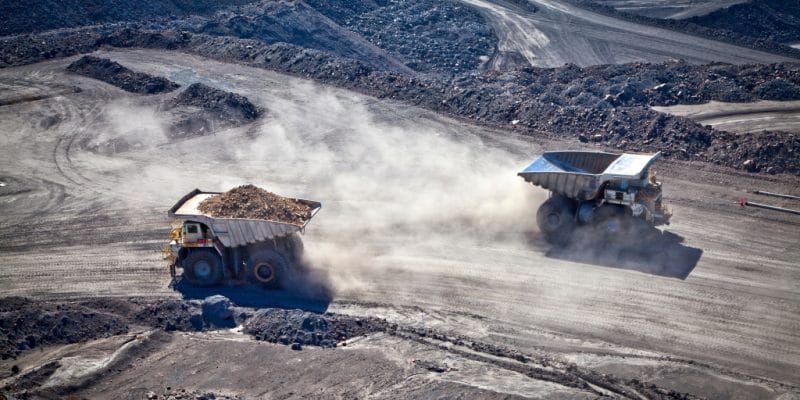The mining company Anglo American wants to achieve carbon neutrality by 2040. This ambition will be achieved through investments in renewable energy, mobility and sustainable logistics.
The mining sector has an important role to play in the global strategy to reduce greenhouse gas (GHG) emissions. Anglo American’s new ambitions are in line with this. The London, UK-based mining company is presenting its plan to become carbon neutral in its mining and processing operations around the world.
In Africa, the mining company mines and processes platinum, gold, and diamonds in South Africa and Ghana. Through its 85%-owned subsidiary, the South African diamond conglomerate De Beers, Anglo American is also present in Botswana and Namibia. For the next few years, the mining company wants to accelerate its sustainability plan in all its areas of operation around the world, including on the African continent.
Investing in renewable energy
The mining company intends to invest more in its energy transition by focusing on sustainable solutions such as solar energy. The group is already working on this, particularly in South Africa, where it has signed a contract with EDF Renewables, the subsidiary of Électricité de France (EDF) and Pele Green Energy, to equip its Mogalakwena platinum mine, located in the Limpopo province, with a 100 MWp photovoltaic solar power plant.
Read also- SOUTH AFRICA: EDF and Pele to supply solar power (100 MWp) to the Mogalakwena mine
Its Ghanaian gold mine in Iduapriem will be equipped with a photovoltaic system to light the residential area for its employees. According to the British holding company, a little more than a third of the electricity used in its facilities worldwide comes from renewable sources. Anglo American plans to get 56 percent of its electricity from renewable sources by 2023.
Reducing emissions in transportation and logistics
“Our strategic choices put us in an increasingly favorable position to supply many of the metals and minerals that are critical to delivering the technologies society needs to decarbonize energy and transportation, but also to meet the needs of an ever-growing global consumer population,” says Mark Cutifani, Anglo American’s chief executive.
As part of its decarbonization strategy, the mining company also plans to reduce its diesel emissions, particularly from its mining trucks. These vehicles are responsible for 10 to 15% of Anglo American’s emissions. These heavy-duty vehicles will be replaced by hybrid trucks with hydrogen fuel cells and 2 MW batteries. According to the group, the hybrid model being assembled in South Africa will be capable of carrying a payload of 290 tons.
The challenge of reducing Tier 3 emissions
“Once testing is complete, we intend to begin deploying this technology across our entire truck fleet starting in 2024, following our normal truck refurbishment and replacement cycles. Our haul trucks account for up to 80% of diesel emissions at our sites, so we plan to take the equivalent of more than half a million internal combustion cars off the road by replacing our trucks with hydrogen,” says the mining company, which employs more than 90,000 people worldwide.
The World Business Council for Sustainable Development (WBCSD) and the World Resources Institute (WRI) estimate that Scope 3 emissions represent the largest share of a company’s GHG emissions. Scope 3 emissions include indirect emissions, such as the extraction of materials purchased by the company to make a product, or emissions related to the transportation of employees and customers who come to purchase its product.
Anglo American aims to reduce its Tier 3 emissions by 50% by 2040. Achieving this goal will involve reducing emissions in its supply chain and logistics, particularly in shipping. “We are working with our customers and technology partners on low-carbon steelmaking technologies. If the decarbonization of the steel sector accelerates, in part through the partnerships we are building, that would take us even further,” Anglo American says.
Jean Marie Takouleu






